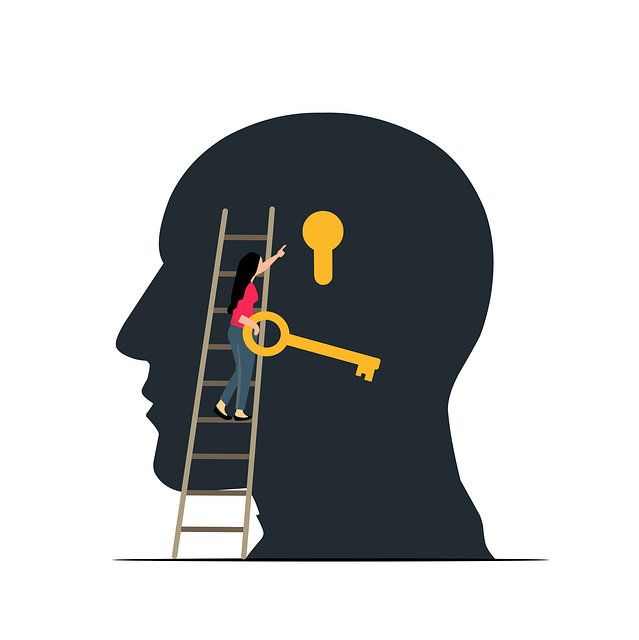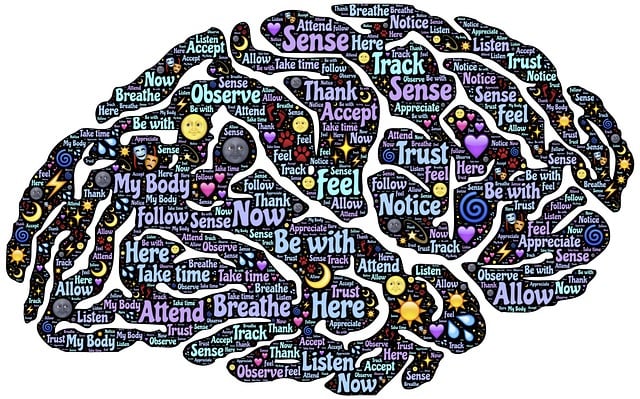Emotion regulation is vital for young children's mental wellness, with tailored therapy methods addressing spiritual-religious issues and cultural backgrounds. Strategies like storytelling, play therapy, gratitude journaling, and acts of kindness promote resilience, prevent burnout, and enhance self-image. Teachers facilitate these techniques to create inclusive spaces where kids learn healthy emotional expression, potentially preventing depression and addressing underlying spiritual-religious issues. Implementing emotional well-being programs blends practical strategies with age-appropriate activities like mindfulness exercises and empathy-building games, cultivating self-awareness and emotional regulation.
Emotion regulation techniques play a pivotal role in fostering healthy development for young children. This article explores effective strategies to help kids navigate their emotions, promoting emotional well-being and resilience. We delve into understanding the unique emotional landscape of childhood, including practical insights on incorporating spiritual and religious techniques that can be seamlessly integrated into educational settings. Additionally, discover actionable steps for implementing comprehensive programs that address emotional challenges in a therapeutic manner tailored for young minds.
- Understanding Emotion Regulation in Young Children
- Incorporating Spiritual and Religious Techniques in Teaching
- Practical Strategies for Implementing Emotional Well-being Programs for Kids
Understanding Emotion Regulation in Young Children

Emotion regulation is a vital skill for young children to develop, as it enables them to manage and understand their feelings effectively. At a young age, children experience a wide range of emotions that can sometimes be overwhelming. Teaching them to identify and regulate these emotions early on is crucial for their overall well-being and mental health. Through various techniques, therapy for young children can help them navigate spiritual-religious issues and emotional challenges.
Cultural sensitivity in mental healthcare practice plays a significant role here, as it ensures that the approaches used are adaptable to each child’s unique background and experiences. By incorporating age-appropriate strategies, such as storytelling or play therapy, professionals can assist youngsters in expressing and processing their emotions healthily. Moreover, addressing any underlying trauma support services can be instrumental in fostering emotional resilience, preventing burnout, and promoting a positive sense of self in children.
Incorporating Spiritual and Religious Techniques in Teaching

Incorporating spiritual and religious techniques into emotion regulation teaching offers a unique and powerful approach to supporting young children’s mental wellness. Many families and communities find comfort and guidance in their spiritual or religious beliefs, which can be leveraged to enhance emotional intelligence. For instance, practices like mindful prayer, gratitude journaling, or simple acts of kindness, rooted in faith traditions, can serve as effective mental wellness journaling exercises. These activities promote self-reflection, empathy building strategies, and positive coping mechanisms, all while addressing potential spiritual-religious issues that may impact a child’s emotional well-being.
Teachers play a pivotal role in facilitating these techniques by providing guidance that respects diverse backgrounds. By integrating spiritual or religious elements into the curriculum, educators can create inclusive spaces where children learn to process and express their emotions in healthy ways. This approach not only fosters resilience but also empowers young minds to navigate life’s challenges with enhanced emotional regulation skills, potentially preventing issues like depression.
Practical Strategies for Implementing Emotional Well-being Programs for Kids

Implementing emotional well-being programs for kids requires a thoughtful approach that combines practical strategies with age-appropriate activities. One effective method is incorporating compassion cultivation practices, such as mindfulness exercises and empathy-building games, into daily routines. These techniques help young children develop self-awareness and regulate their emotions in healthy ways. For instance, simple breathing exercises or guided visualizations can teach kids to recognize and manage stress, anxiety, or anger.
Additionally, integrating self-care practices tailored for children enhances emotional resilience. Encouraging activities like journaling, creative arts, or outdoor play allows kids to express their feelings and build self-esteem. Addressing spiritual-religious issues sensitively through stories, music, or quiet reflection can also foster a sense of calm and purpose. By combining these approaches, educators and parents can create nurturing environments that support the holistic development of children, promoting emotional intelligence and overall well-being.
Emotion regulation is a vital skill for young children to develop, as it fosters their overall well-being and social-emotional growth. By incorporating practical strategies from various disciplines, including spiritual and religious techniques, educators can create comprehensive programs that effectively teach kids how to manage their emotions. These teaching methods not only enhance emotional intelligence but also serve as therapeutic tools, addressing potential spiritual-religious issues and promoting resilience in children. With dedicated instruction, young minds can learn to navigate their feelings, leading to better mental health outcomes and a more balanced life.













